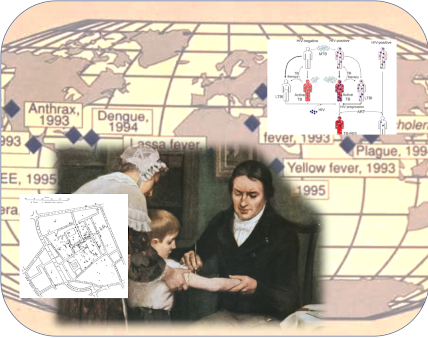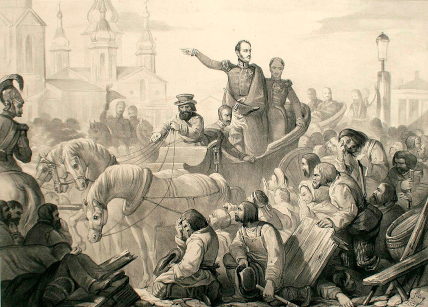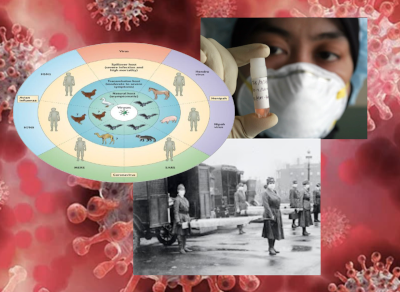Insights from the Collections
The Consortium's collections provide many opportunities to learn more about the history of science, medicine and pandemics.
Our cross-institutional search tool allows researchers to investigate materials across multiple institutions from a single interface. With millions of catalog records of rare books and manuscripts and thousands of finding aids, the Consortium's search hub offers scholars and the public the ability to identify and locate relevant materials.
Related Publications from our Speakers:
Neeraja Sankaran, A Tale of Two Viruses Parallels in the Research Trajectories of Tumor and Bacterial Viruses (University of Pittsburgh Press, 2021)
Stephen P. Weldon, The Scientific Spirit of American Humanism (Johns Hopkins University Press, 2020)
Stephen P. Weldon, “History of the World History of Science Online Project,” Acta Baltica Historiae et Philosophiae Scientiarum (2013). Open Access URL: http://www.bahps.org/09_Weldon-2013-2-09.pdf (pdf)
Stephen P. Weldon, “Recent Trends in Research in the Field of the History of Science,” Webinar Presentation for the Collections Forum on Science, Technology, and Engineering, Center for Research Laboratories, Annual Council Meeting, April 19, 2013. URL: https://www.youtube.com/watch?v=lDmywUFD_IA; presentation begins at 35:00 and runs to 1:17:00
Episode 1:
Lukas Engelmann, "An Epidemic for Sale: Observation, Modification, and Commercial Circulation of the Danysz Virus, 1890–1910," Isis: A Journal of the History of Science Society, 112(3):439-460 (2021)
Lukas Engelmann, "A Box, a Trough, and Marbles: How the Reed-Frost Epidemic Theory Shaped Epidemiological Reasoning in the 20th Century," History and Philosophy of the Life Sciences, 30;43(3):1-24 (2021)
Lukas Engelmann, Mapping AIDS: Visual Histories of an Enduring Epidemic (Cambridge: Cambridge University Press, 2018) (Global Health Histories)
Jacob Steere-Williams, The Filth Disease: Typhoid Fever and the Practices of Epidemiology in Victorian England (University of Rochester Press, 2020)
Jacob Steere-Williams, “A Menace or a Martyr to the Public’s Health?” Isis: A Journal of the History of Science Society, 111(4): 818-821 (2020)
Jacob Steere-Williams, “‘Coolie’ Control: State Surveillance and the Labor of Disinfection across the late Victorian British Empire,” in Rob Heynen and Emily van der Meulen (eds.) Making Surveillance Societies: Transnational Histories (University of Toronto Press, 2019)
Dora Vargha, "Technical assistance and socialist international health: Hungary, the WHO and the Korean War," History and Technology, 36(3-4): 400-417 (2021)
Dora Vargha, Polio across the Iron Curtain: Hungary's Cold War with an Epidemic (Cambridge, Cambridge University Press, 2018)
Dora Vargha, "Socialist Utopia in Practice: Everyday Life and Medical Authority in a Hungarian Polio Hospital," Social History of Medicine, 31, 373-391 (2018)
Related forums and podcasts:
A Tale of Two Viruses, an interview with Neeraja Sankaran
Polio Across the Iron Curtain, and interview with Dora Vargha
Series: Perspectives on the COVID-19 Pandemic (12 episodes)
Series: Perspectives on "Race Science" and Scientific Racism (10 episodes)
Sickness and the City
The Scientific Spirit of American Humanism, an interview with Stephen Weldon
Trust in Science: Vaccines
See also recent work from our fellows:
George Aumoithe, Epidemic Preparedness in the Age of Chronic Illness: Public Health and Welfare Politics in the United States, 1965-2000
Nicholas Bonneau, Unspeakable Loss, Distempered Awakenings: North America's Invisible Throat Distemper Epidemic of 1735-1765
Marcos Cueto, A History of Global AIDS and Health Activism in Brazil
Bethany Johnson, In the Aftermath of the “Lost” Pandemic: Philadelphia, 1919-1922
Julia Mansfield, The Disease of Commerce: Yellow Fever in the Atlantic World, 1793-1805
Matthew Newsom Kerr, Re-Visualizing Vaccination: The British and American “Anti-Anti-Vaccinationist” Movement, 1890-1914
Dora Vargha, Road to Eradication: Global Polio Vaccine Testing in the Cold War














